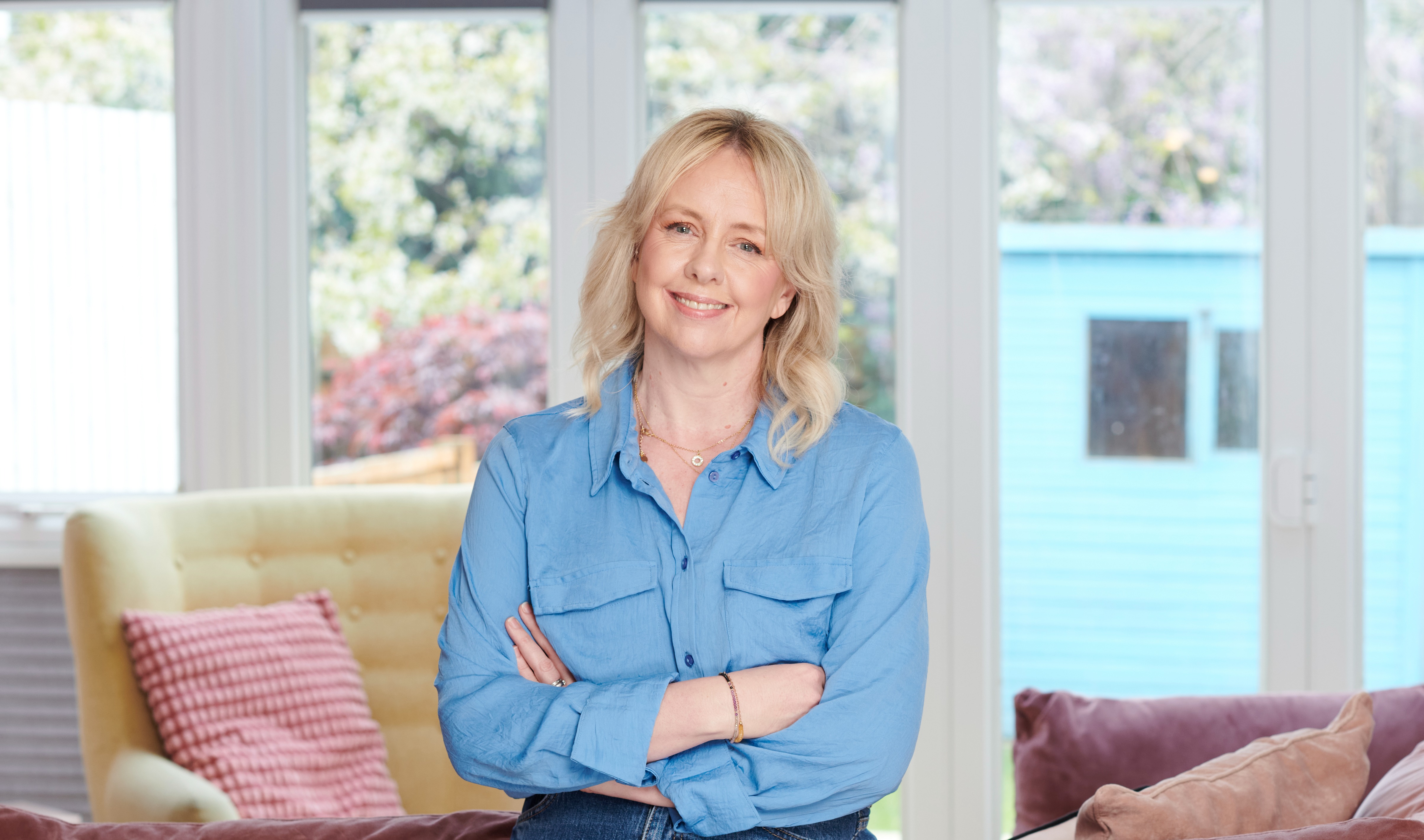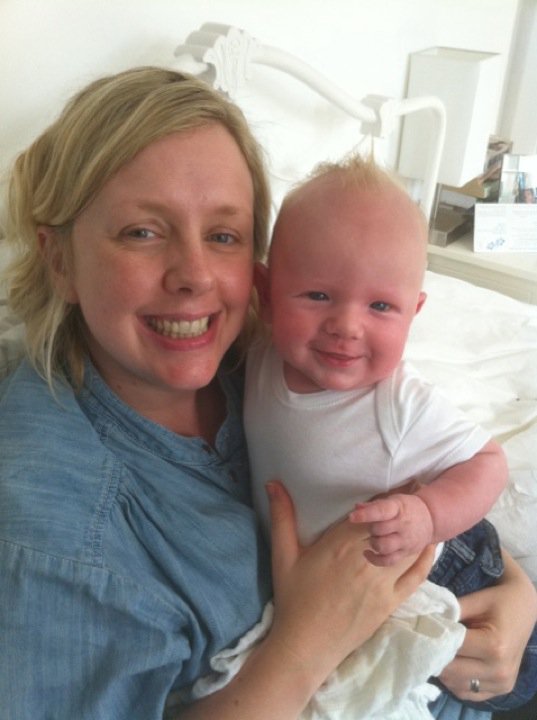FROM swapping tales of late-night feeding dramas to helping identify mysterious rashes, a ready-made mummy tribe can be an invaluable lifeline.
But for some, the prospect of making a new set of grown-up friends can be daunting – especially when already feeling frazzled and overwhelmed.
Jayne Cherrington-Cook, 50, is a website editor who lives in Bexley, Kent, with her civil-servant husband Russell, 54, and their son Milo, 13.
She deliberately avoided bonding with other new mums after Milo’s birth.
Here, she explains why women need to behave more like men . . . sticking with mates who like a laugh and don’t want to talk about leaky boobs or night-time meltdowns.
When I got pregnant at 36, pushing a tiny human out of my intimate parts was the only thing on my radar.
Making new mummy mates was not a priority.
For me, antenatal classes held zero appeal.
I’d rather have had a root canal without anaesthetic than go to one.
Losing my pelvic floor was one thing, but losing my identity was another — and I was determined it wasn’t going to happen to me once I became a mum.
However, the newborn haze eventually lifted and a new pressure emerged — the expectation to join the fabled world of mummy friends.
Full of good intentions, my health visitor pushed these groups, citing the benefits for both my son’s development and my own well-being, especially given the prospect of post-baby blues.
Reluctantly, I carted Milo to his first baby sensory class.
Looking back, I wonder how, and why, I had this ridiculous idea that I’d make any friends.
Tiny humans veering between napping and crying isn’t exactly conducive to forming a girl gang.
Utterly mind-numbing
It felt so unnatural and forced.
And, take it from me, it’s impossible to bond when you’re trying to get a four-month-old to paint (yes, paint).
The other mums seemed “nice”, but I didn’t click with any of them.
As for the baby talk, it was utterly mind-numbing.
I craved adult conversations that didn’t revolve around teething troubles or what was in my baby’s nappy.
Those early days of motherhood were really quite dull and I yearned to break free from chats about sharing tips on B&M bargains or moaning about our other halves not pulling their weight.
Relief washed over me when I returned to work after seven months on maternity leave.
The joy of interacting with people who didn’t even know I was a mum — because I didn’t shout about it like some do — was pure bliss.
Lunch breaks became havens for sharing thoughts and laughter with women who I actually wanted to be around.
Real conversations also replaced competitive parenting.
I had no interest in little Jimmy’s ability to read at 18 months and I was so sleep-deprived, I grew tired of listening to parents who were clearly living through their children’s achievements.
Schooldays are a social minefield and I soon felt like I was back in the classroom myself
Jayne
Don’t get me wrong, I’ve always been beyond proud of my son, but why do mums feel the need to brag.
One would drop in her boast ever so casually with: “I’ve got lots of nappies going spare if anyone wants them, because I’ve potty trained my daughter now.”
I wouldn’t have minded but the daughter in question was one . . . who has the time or energy at that age?
When my son started primary school, a flicker of hope for mum friendships emerged.
You spend so much time at drop-off and pick-up, I thought it would be nice to be able to pass the time away having interesting chats and I tried hard not to shut myself off.
But schooldays are a social minefield and I soon felt like I was back in the classroom myself.
Parent cliques made me feel like a shy 13-year-old again.
I didn’t dress like the other mums, who were clad in gym gear and skinny jeans.
I love fashion and thought nothing of turning up to the school run in high-waisted flares with a leopard print jacket, or maxi skirts with retro trainers.
One time, I actually heard someone whisper: “What is she wearing?”
Because I was self-employed as a website editor, I didn’t fit into the stay-at-home brigade, or the full-time working mum bunch either.
I welcomed the days when something cropped up at work and I could send my son to after-school activities, meaning I got to duck out of the dreaded pick-up.
Kids’ birthday parties were another nightmare.
Two hours of endless small talk with the other mums felt like an eternity, while the loud, chaotic environment didn’t suit my autistic son, who often struggled to participate, wore noise-cancelling headphones, or simply clung to me the entire time.
When Milo was around six, I tried again to open my mind to having mums for mates.
I thought it would be nice for my son as I’d be able to organise playdates, and I was also hopeful I might meet a local friend.
I even gave mum nights out a try. I found myself warming to some of the other mothers, until one cornered me and critiqued my parenting, telling me I was doing it all wrong.
Honesty has always been my golden rule, especially with raising an autistic son.
All just winging it
But this mum thought I shouldn’t be so open about it with other people, and in particular with my son.
She believed I should have kept his autism from him, that, somehow, knowing how his own brain works wouldn’t benefit him.
I mean, who does that?
We’re all just winging it, doing the best we can.
I didn’t like who I was around these women.
I felt constantly on edge and defensive.
I ached to hang out with my actual pals, the ones who knew the real me and understood I was busting a gut to give my son the best life he could have.
I welcomed secondary school with open arms.
Milo was on the path to independence and the dreaded school run became a drop-and-go affair.
Some might say it’s me and ask, “What’s her problem?”.
But one study gives me comfort.
You can survive this parenting lark without a mum tribe
Jayne
According to US research, friendships during the early stages of parenting are good for children’s brains, but — please note — those friendships can be with anyone, not just other mums.
Researchers believe this happens because strong friendships provide support for mothers, allowing them to share the parenting load and lessen their mental burden.
This, in turn, positively impacts their children’s well-being.
Strong friendships are key, regardless of whether your friends are parents too, so why is there so much pressure on women to find new mum mates as soon as they’ve given birth?
Contrary to popular belief, you can survive this parenting lark without a mum tribe.
Yes, some of my close friends are parents too, but we knew each other BC (before children) and we rarely talk about our kids.
I’d advise any new mums to think more like a man.
They don’t have specific dad mates, just other blokes who they like spending time with.
So surround yourself with people who make you laugh, who celebrate your individuality and who understand that your leaky boobs and encyclopaedic knowledge of Paw Patrol are just a small part of your life.
Your sanity (and your social life) will thank you for it.
















